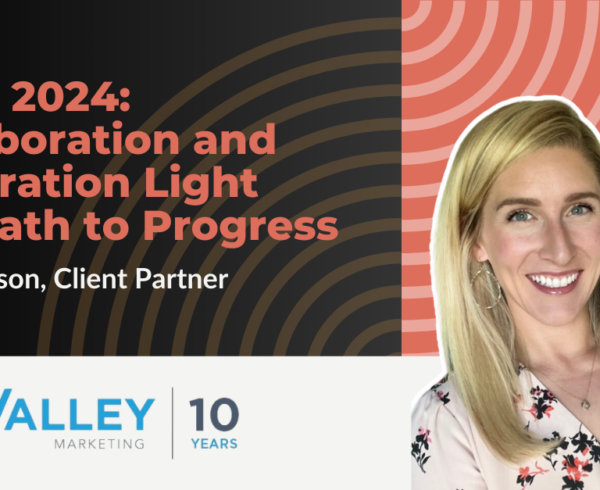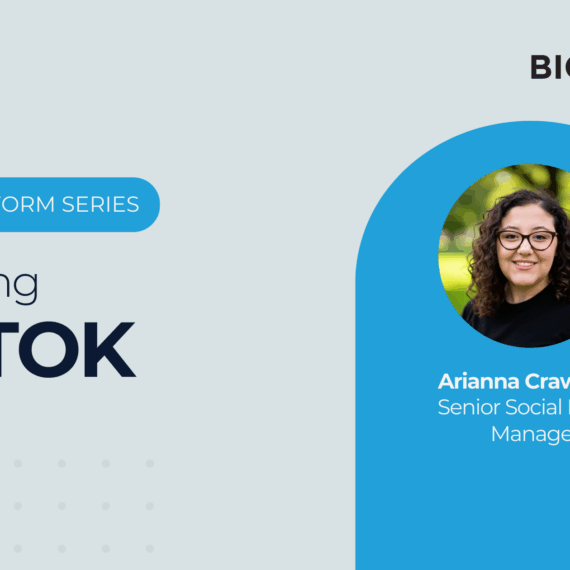Last month, I had the privilege of attending the DIA 2024 conference, the premier event for professionals in drug development and regulatory affairs.
Often, this group of 5,000 clinical research professionals are working at desks, computers, and buried in spreadsheets and systems, navigating the complicated and complex industry that is clinical research.
But this conference is an opportunity to collaborate, learn from each other and hear firsthand why their work matters – and who it matters to.
At the keynote, we heard from Tom Whitehead, whose 5-year-old daughter was the first pediatric patient of the CAR T-cell therapy to fight her leukemia. She was on her death bed, and it was their last hope. There was not a dry eye in the room when Emily Whitehead appeared from behind the screen and joined her dad on stage, sharing that she just finished her freshman year at UPenn, and personally thanked everyone working in clinical research.
Stacy Hurt, Chief Patient Officer at Parexel, a cancer survivor herself and a care giver to her son with a rare disease, pleaded with the audience to include patients early and often in clinical trials – and that patient experience can’t be a guidance, but needs to be a mandate to improve clinical trials.
And Tammy Kim, the Director for Regulatory Affairs and Policy Oncology Center for Excellence at the FDA, shared the important work of the diversity action plans and how the industry can take the right steps to ensure that a representative population is included in their evidence generation.
It always is a great reminder for why we work in healthcare and digital – for the patients who need it. But our industry is still figuring out how best to navigate all the challenges that can slow the progression of innovation.
Below are the key trends from DIA 2024 that the industry needs to follow as they will significantly impact these sectors’ evolution via innovation and digital transformation:
Accelerating Clinical Trials Digital Transformation
The continued digital revolution in clinical trials was a prominent theme at DIA 2024. Discussions emphasized the integration of virtual trials, wearable health technologies, and AI-driven analytics to enhance trial efficiency and improve patient experiences.
Although technology is always a hot topic, much of the conversation centered around the patient experience with technology (is this a reasonable request?), how many systems exist and the need for interoperability of systems for streamlined workflows and compliance. It feels like we are just at the beginning of what’s possible for healthcare and clinical trials.
Emma Cooke, executive director of European Medicines Agency, shared how we need to use our access to data and technology to change how we do business and so that it benefits patients globally. “We need to collaborate, collaborate, and collaborate again,” was her final call to action to the audience.
Personalized Medicine Innovation May Need More Risk
Personalized medicine continues to transform the healthcare landscape, and DIA 2024 highlighted substantial progress in this field. By leveraging genomics, biomarkers, and AI, treatments are becoming increasingly tailored to individual patients, resulting in better outcomes and fewer adverse effects.
But with personalized medicine comes additional challenges when enrolling patients and executing a clinical trial. With innovations, operations must adapt. As Dean Kamen of ARMI and DEKA said during the keynote panel, “if you want innovation, you got to be prepared to deal with risk and modify your process to be effective for the current situation at hand.” In a landscape that avoids risk, this is a significant challenge for regulators.
Regulatory Hurdles Continue to Slow Down Treatment Approvals
Speaking of regulation, navigating the evolving regulatory environment was a key topic at the conference. With initiatives like the FDA’s Real-Time Oncology Review (RTOR) program aimed at speeding up the review process for cancer treatments, regulatory affairs professionals are adapting to a faster-paced, innovation-driven landscape.
Tammy Kim, FDA, also shared how the intention behind the upcoming diversity action plans was never to slow down drug development, but to provide safe product that would represent the population. Much of the work has been around loosening criteria and quickening enrollment when possible.
Dirty Data Threatens Healthcare AI Innovation
The ethical implications of AI and big data in healthcare were thoroughly examined at the conference. Issues such as data privacy, algorithmic bias, and the need for transparency and equity in AI-driven decision-making were hotly debated.
Even though AI is an obvious hot topic in every industry, for healthcare, the focus has been more on clean and accurate data. Without data integrity, AI models will simply provide inaccurate options.
Technology Needs To Enable Patients, Not Be a Roadblock
A big focus this conference was the intersection of technology and the patients. The balance is shifting – one from a world where patients follow a trial, no questions asked, to a world where patients are involved in protocol design, provide feedback on the experience, are considered when it comes to daily inconveniences, and where trials are thoughtful when it comes to technology use.
In one example, someone shared how a patient with cognitive issues had to log into an application on a tablet, fill out a form, log out, switch over to a desktop, log into that same app, fill out a form, log out, and go back to the tablet. For someone with cognitive issues, this situation provides room for error, frustration, and a poor experience.
Technology needs to be the enabler – and not the roadblock.
As we near the half-way point of 2024, attending DIA was a reminder of the dynamic nature of our industry and the ongoing drive towards innovation and patient-centricity. The trends discussed – from digital transformation and personalized medicine to regulatory evolution and patient experience – highlight the significant opportunities and challenges ahead for all digital health companies working to make a difference in clinical research.
Were you at DIA 2024 as well? What were your key takeaways?











